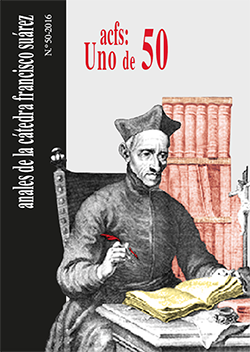Deviation among jurists
DOI:
https://doi.org/10.30827/acfs.v50i0.5164Keywords:
May 1968, anti-establishment, critical legal studies, sociologyAbstract
The context of this article is France after May 1968. Arnaud sets out to explain the motivations that gave rise to anti-establishment structures within the legal profession in that country. That is, the author explains how the movement of “critical legal studies” emerged. The more critical judiciary believed that social issues are political issues, while the conservative sectors of the judiciary accused critics of being “politicized”. The anti-establishment sector of the Academy denounced the formalist ideology that avoids the social and economic implications of the laws. Finally, the system attempts to integrate the response through reforms.
Downloads
References
SBRICCOLI, L’interpretazione dello statuto. Contributo allo studio della funzione dei giuristi nell’etá comunale, Milano, 1969.
M. TROPER, La Séparation des pouvoir s et l’histoire constitucionelle française, París, 1973.
R. K. MERTON, “Bureaucratie et personnalité”, en Eléments de théorie et méthode sociologique, trad. franc., París, Plon, 1965.
J. DUVIGNAUD, L’anomie. Hérésie et subversion, París, Anthropos, 1973.
Ch. PERELMAN y L. OLBRECHTS, Traité de l’Argumentation. La
rhétorique, 2.ª ed., Bruxelles, 1970.
M. MAILLE, Une introduction critique au droit, París, Maspero, 1976.
NEMO, L’homme structural, París, Grasset, 1975.
MACCIOCHI, Gramsci y la Revolución de Occidente, Madrid, Siglo XXI.
Downloads
Published
How to Cite
Issue
Section
License
Authors are the owners of the rights to their works. ACFS requests that publication notice on ACFS is disclosed if they appear later in another place.

















